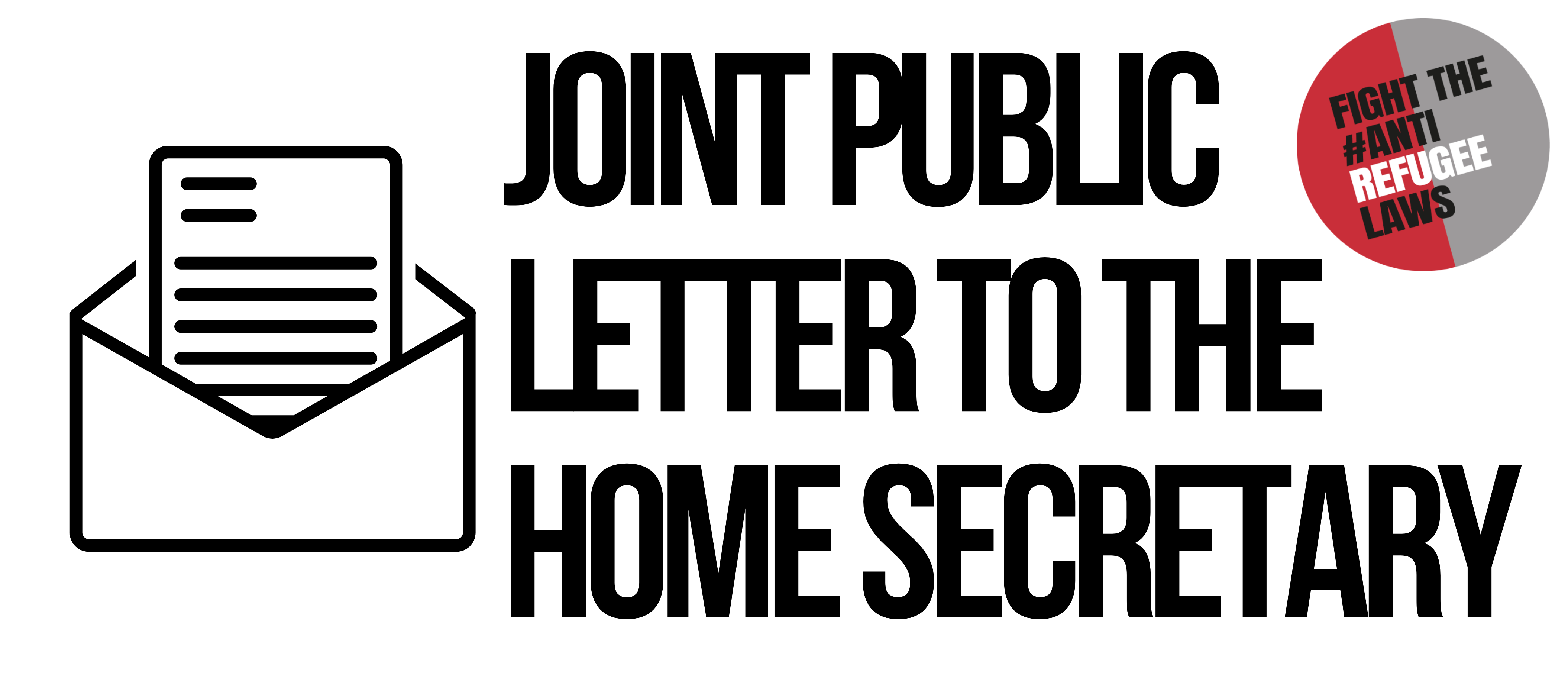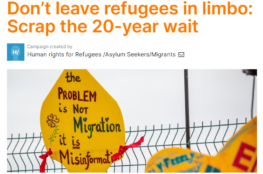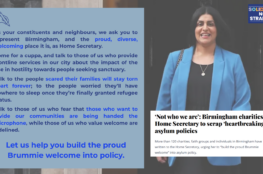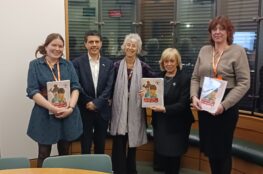More than 300 charities and voluntary organisations have warned the Home Secretary that they ‘cannot accept’ her proposal to make volunteering a condition of leave to remain in the UK for migrants and refugees.
At Labour Party conference, Shabana Mahmood announced people might have to prove a ‘contribution’ including ‘volunteering your time to a local cause’ as part of applications for settlement. But charities and volunteering bodies including the National Council for Voluntary Organisations (NCVO) and the Directory of Social Change have now called the suggestion “both immoral and impractical”. The Government has said it will share a consultation on the plans for a “contribution based model” by the end of the year.
In an open letter, coordinated by organisations including Asylum Matters, Focus on Labour Exploitation and Praxis, they called the proposal “an exploitation of volunteering that we cannot accept”.
Signatories, which included local voluntary action bodies and associations, arts charities, disability groups and local litter picking groups, alongside migrant and refugee support organisations, warned that small grassroots charities “cannot afford to divert valuable resources” to reporting to the Home Office on their volunteers and that any such demand would create a huge strain on their services.
The groups urged the Government to scrap any proposals to tie volunteering to immigration status and consult with charities before floating any plans relating to volunteering.
Leigh Brimicombe, Director of Voice and Impact at NCVO said: “Giving your time to support the people and causes that matter to you, out of your own free will, is what makes volunteering so special. The idea of mandating volunteering as a condition for those seeking indefinite leave to remain fundamentally undermines the idea of volunteering. It’s important the government works with charities, and not does to them, so that policy can better encourage the pipeline of volunteers charities need to continue delivering their vital work.”
Signatory Gee Manoharan, co-director of the Association of Visitors to Immigration Detainees (AVID), said: “Volunteering wasn’t a condition of my belonging—it was how I discovered I already belonged. While I was seeking asylum in Northern Ireland, I volunteered to paint local homeless centre, volunteer with community search and rescue team, and other local community initiatives across Northern Ireland. But my most meaningful work was setting up and running visitors’ groups for people in immigration detention —even while I faced the constant threat of being detained. I visited because I knew the isolation, the fear, the desperate need for connection.
“The community didn’t demand my labor as proof of worth; they offered connection, and I offered mine in return. That’s the power of true volunteering: it creates belonging, it doesn’t enforce it. My volunteering paid dividends in humanity that no policy could measure. It was freely given, and it changed my life. That’s what we stand to lose.”
Louise Calvey, director of Asylum Matters, said: “It should be very clear to the Home Secretary that organisations across the voluntary sector, the people who would have to enforce this unworkable policy, will not accept it. This is a nonsensical plan that undermines the principle of volunteering and ignores and undermines the immense contribution already made to the voluntary sector by migrants, particularly by people seeking asylum who do a huge amount of unpaid work while they are banned from regular employment.”
The full text of the letter reads:
Dear Home Secretary,
We write to you as a sector that would not exist without volunteers. Our volunteers come from all walks of life, from every age group and every community. Volunteering adds £24.69bn to our economy every year. It delivers invaluable benefits to communities and individuals, building skills, boosting confidence and forging lasting social bonds.
During the recent Labour Party conference, we were shocked to hear you suggest volunteering could become a pre-condition of Indefinite Leave to Remain for migrants and refugees. This proposal represents an exploitation of volunteering that we cannot accept. Effectively making volunteering compulsory undermines its many benefits, and would create a population of people forced to work for free, under threat of having their lives in this country ripped away from them.
As organisations that work with hundreds of thousands of volunteers every year, we tell you now: we will not work with coerced volunteers. We will not report to the Home Office on the time people give freely, to us and to their communities. We will not allow our volunteers’ valuable work to be used against other migrants and racialised people who are not able to volunteer.
We know that the contribution made to this country by migrants is enormous and varied. We are proud to count many migrants amongst our volunteers. In particular, we see the huge contribution that people seeking asylum, banned from work and eager to give back to their new communities, make to the voluntary sector. These contributions are so valuable precisely because they are offered freely: they must not be enforced with threats.
Our volunteers’ lives vary significantly. There is no one single type of person who volunteers or set of circumstances that allow for volunteering. But we also know that many people, whether because of caring responsibilities, disabilities, health needs or work schedules are not currently able to volunteer. The exorbitant fees baked into our migration system mean many people have no choice but to take up paid work every hour they can, leaving no spare time for volunteering. This does not make them any less worthy of belonging in this country: to suggest it does is outrageous and discriminatory. We also share the concern of organisations supporting survivors of modern slavery and human trafficking, who fear these proposals may pressure survivors into unpaid work that could be deeply damaging for their journey of recovery.
Any plans to monitor volunteering as a condition of immigration status would inevitably demand a huge amount of reporting work from the voluntary sector. Even without our moral objections, we represent frontline charities doing vital work, often stretched near breaking point to fill in gaps left by state services. Our communities cannot afford for us to divert valuable resources to such reporting, and we have profound concerns about the implications of data-sharing it would force us to contend with.
Making volunteering a condition of belonging in this country is both immoral and impractical. We urge you to shelve this plan, to consult with the voluntary sector before announcing any future plans involving volunteering, and ensure people with lived experience of migration are involved in shaping any changes to ILR.
Yours,
Over 300 VCS organisations and volunteering bodies




